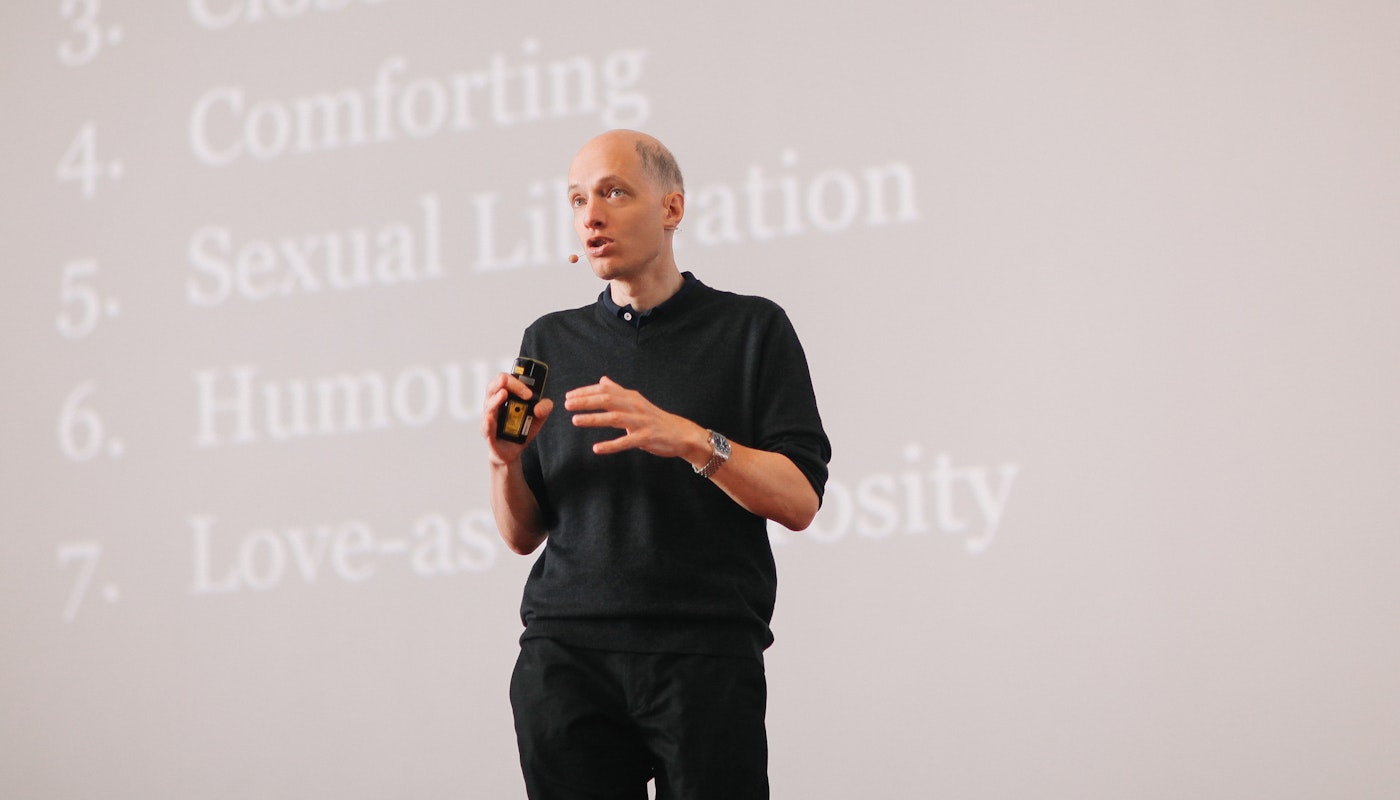A Swiss-born British philosopher, Alain took a double starred first at Cambridge before devoting his life to applying big philosophical ideas to the every day, thereby making those concepts newly accessible to his many readers. It’s an approach that has translated to international bestsellers – as well as making him a divisive figure on the philosophical landscape; his naysayers label him a ‘pseud’ and decry that much of his work simply ‘states the obvious’.
And yet his demystification of philosophy – so often ostensibly impenetrable to those who do not hold starred double-firsts from Cambridge – turns what is often perceived to be lofty and ‘not for the likes of us’ into a genuinely useful commodity.
It is the premise that his hugely popular School of Life is also predicated on. That in the twelve years since it opened its doors, it has flagships stores in London, Mexico, Antwerp, Amsterdam and Berlin speaks volumes. Its principle is that, via its courses and its shops, The School of Life can help people to lead more fulfilled lives. What’s not to love?

Classes include the likes of ‘How to Make Love Last’; ‘How to be Confident’; and ‘How to Fail’. No wonder, then, that it has been a roaring success; to navigate those core and central life lessons is surely, all most of us ever really want – and why not learn about philosophy into the bargain? The latter enables students to contextualise the way they feel in thinking that, in some cases, goes back millennia. The School of Life is then, fundamentally, a place to examine what it is to be human.
Here Alain de Botton tells us why removing anonymity is the key to online civility, and how you should never, ever, delete people on Twitter.
My favourite website...
Architonic. Who would have thought that every single piece of furniture on the planet more or less would have been grouped together by theme and style and arranged in an easy-to-use website? A masterpiece of indexing and collation.My favourite app...
Find My. It used to be called Find my Friends on Apple, now it's got a more generic name but the key thing is that it finds stuff you care about; for me, usually my children. It's immensely reassuring to know where they are around London at any time. I sometimes look them up, not to say anything to them just for the thrill of seeing them somewhere else. Slightly spooky of course but not when animated by parental love.My favourite blog...
Wait But Why is full of interesting stuff, amateur but brilliant infographics and a quirky sense of humour.My Internet hero...
The people who built Google Docs (originally a company called Upstartle): the product has changed my life, enabling me to work anywhere in the easiest possible way.My favourite podcast...
Elizabeth Day's How To Fail.My favourite YouTuber...
Nonstop Dan, who reviews airplane cabins on different airlines and is an Oscar Wilde for the modern age.
My most recent buy online...
An electric toothbrush on Amazon.Last book you downloaded or read...
Izaac Walton's The Complete Angler.Favourite tweeter...
Peter Foster has been the best commentator on the disaster that is Brexit.Favourite Instagrammer...
@andrewjones2253 is a corporate lawyer living in London who is, at the same time, on the side, one of the world's finest photographers who records his extraordinary life and appreciation of everything.Social media allowed me to meet...
Kelly Lee Owens, an amazing Welsh musician.The best digital advice I've been given...
Mute people on Twitter, don't delete them, it'll only thrill them.My screensaver is...
A black screen.My standout online memory...
The first time successfully Skyping with someone and thinking: the future is here and it's almost banal...My pet online hate is...
All forms of unkindness.Social media gets comes in for a lot of criticism; how can we harness it to feel better – rather than worse – about ourselves?
Remove anonymity: if you want to be nasty, you have to identify yourself fully!The Internet has enabled a democracy of learning, thanks to YouTube talks, online courses and more. What are the best online resources for learning?
The best learning videos are those that tell you how to boil an egg or throw a needle – the stuff you could ask your grandmother when we still had those.And how do we filter out the information overload to find the useful stuff?
The battle is lost. We are doomed.On balance, the Internet: a force for good or ill?
Definitely a force for terrible ill, but it's too late...March 2020
By Nancy Alsop
READ MORE:
Guest Editor: Dan Jones
Guest Editor: Sue Blackwell
Guest Editor: Emma Bridgewater


